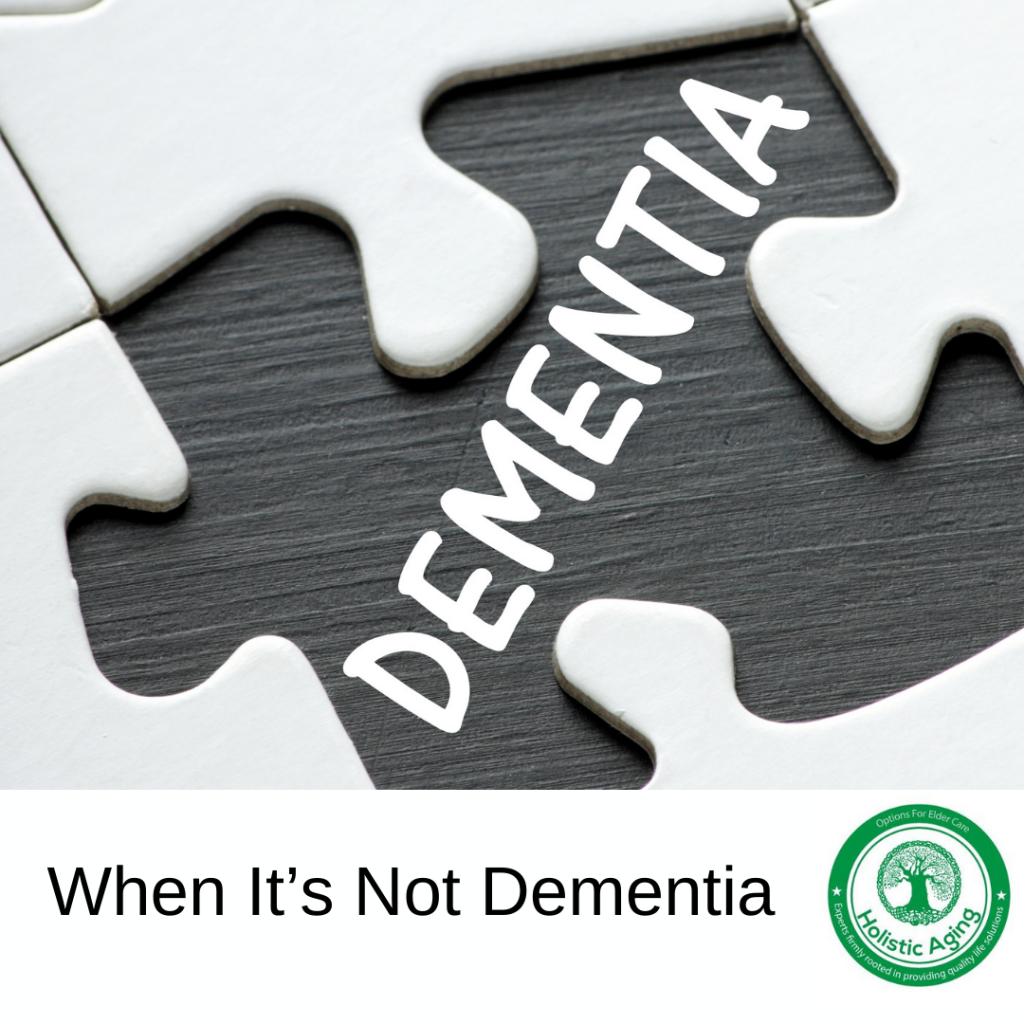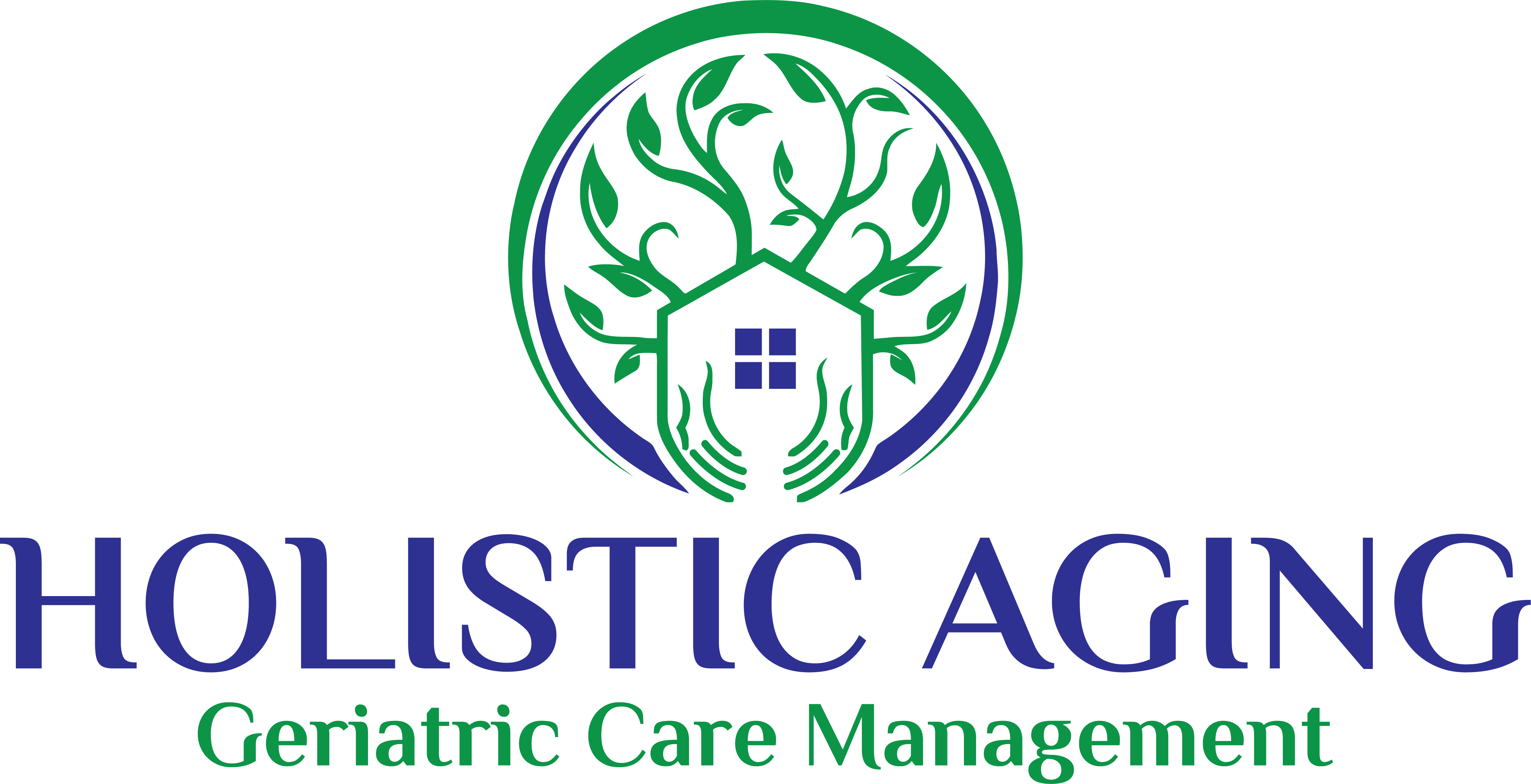
When It’s Not Dementia
Family members are understandably concerned when their aging parent begins experiencing memory loss or confusion. Their first thought may be that their parent has Alzheimer’s disease or another form of dementia.
When It’s Not Dementia
There are several physical conditions that could be associated with the same symptoms. These include thyroid disease, nutritional deficiencies, adverse reactions to medications, depression—even a brain tumor.
“These conditions should be ruled out, through blood tests or other medical tests, before you have a neurocognitive workup,” says Barbara (Bobbi) Kolonay, RN, BSN, MS, CCM, president of Holistic Aging – Options for Elder Care, a life care management firm in Pittsburgh, Pa.
Kolonay makes a distinction between rapid-onset versus non-rapid onset of memory loss and confusion. Except where noted, the conditions listed below are non-rapid onset and have several symptoms that mimic Alzheimer’s disease or other forms of dementia. They are among the possibilities that should be ruled out prior to consideration of neurocognitive causes.
Thyroid Disease
There are two types of thyroid disease: hypothyroidism (an underactive thyroid) and hyperthyroidism (an overactive thyroid). Several of the symptoms are similar to those of a neurocognitive disorder. “Any time that someone presents with what is perceived to be confusion or possible memory loss, they should always have their thyroid checked,” said Kolonay, adding that there are simple tests to do so. Other symptoms include fatigue, mood swings, weight gain, and muscle or joint pain.
Nutritional Deficiencies
“There are a few different kinds of nutritional deficiency,” Kolonay says. “The most common is a B12 deficiency. It’s possible that you could be taking B12 but just not absorbing it sufficiently. The name for that is pernicious anemia, and it has very similar symptoms to Alzheimer’s disease.”
Among the symptoms, some of which are not common with Alzheimer’s, include fatigue, headaches, tingling sensations in the head and feet, balance problems, tiredness, and confusion. There is a simple test to determine the body’s B12 level, and if a deficiency is determined, it can be remedied through B12 injections.
Another deficiency that can mimic Alzheimer’s or other forms of dementia is a reduced thiamine level. This is a common condition among alcoholics; it can be remedied by abstention from alcohol, modification of diet, and medications to boost the thiamine in the body.
Brain Tumor
When a patient has symptoms of memory loss or confusion, a CT scan or MRI may be warranted to rule out the possibility of a brain tumor. “A physician will know, based on the symptoms the patient is presenting, whether to do one of these tests,” Kolonay says. “The average non-medical person is not likely to recognize potential brain tumor symptoms. People could be minimizing what they are seeing and think that family member is experiencing older adult confusion.”
Normal Pressure Hydrocephalus (NPH)
Normal Pressure Hydrocephalus (NPH), a condition in which there is an increase in pressure on the brain caused by a build of cerebrospinal fluid, occurs most often among older adults.
NPH has the potential for being misdiagnosed as a form of dementia since there are overlapping symptoms. However, Kolonay says NPH presents differently. “People who have NPH will lose bladder control initially, whereas you don’t see that with Alzheimer’s or other neurocognitive issues until close to the end,” she says, adding that NPH is also characterized by a hesitant type of gait.
“If caught early, NPH is very simply rectified by putting in a shunt or a small tube from the brain to the heart,” Kolonay reports.
Medications
Side effects of various medications may also mimic the signs of Alzheimer’s disease or other neurocognitive disorders. “Some of them may cause memory problems, appetite problems, or sleep disturbances,” says Kolonay, noting that many of these drugs fall into the category of anticholinergic drugs.
Kolonay suggests consulting the website Aging Brain Care (ABC), which has compiled a list of widely prescribed drugs that have strong negative side effects for the aging brain. The ABC’s Anticholinergic Cognitive Burden scale provides a ranking of these drugs on a scale of 1 to 3. According to that scale, among drugs that should be avoided by older individuals are: Benadryl, the common over-the-counter antihistamine; the antidepressant Paxil; the heart drug digoxin; the blood thinner warfarin; the painkiller codeine; and the steroid prednisone.
Depression
“The symptoms of depression can sometimes mimic the symptoms of a neurocognitive disorder,” Kolonay says. “If you treat the depression, the symptoms will subside—even in a person who has a neurocognitive disorder in addition to depression.” Kolonay cautioned that if depression goes undiagnosed, medications that are given for other conditions—perhaps to treat behavioral issues, for example—may actually worsen the depression.
Rapid-Onset Conditions
In addition to the above non-rapid onset medical conditions, there are conditions that are characterized by rapid-onset memory loss and confusion. These, according to Kolonay, can include a variety of infections. One such common occurrence is a urinary tract infection (UTI).
“You can go from one day, when the person sees perfectly fine, to within 24 years the person is having severe symptoms,” Kolonay says. “There could be a rapid onset of memory issues, confusion, and sleep disturbances. In the majority of Alzheimer’s disease and other neurocognitive conditions, you’re going to see some problems with verbal skills. However, you usually don’t see that with someone who has rapid-onset memory issues when caused by a urinary tract infection. So, that is one distinction to be aware of.”
Another rapid-onset condition is delirium. “You’ll typically see this after an older person has had surgery and is in a post-op hospital setting,” Kolonay says. “They didn’t have the symptoms prior to being admitted. Since being admitted, they’ve had pain medications and anesthesia, loss of fluids, and are in an unfamiliar environment.”
Typically the delirium clears up once the patient is off the medications, getting enough fluids, eating normal food, and back in his or her regular environment.
Medical Evaluation
The protocol in the medical community is to order the blood work and other tests that will rule out the physical causes for memory loss and confusion before proceeding with neurological testing. “A family practice physician typically does not do this,” Kolonay says. “It requires a neuropsychiatric evaluation by a neuropsychologist or possibly a geriatric physician.”
If there is a neurological cause, it’s important to obtain a specific diagnosis. “Dementia is not a diagnosis; dementia is a category,” Kolonay stresses. “When you say someone has dementia, I use the analogy that it’s like saying someone has a car. There are many types of cars, and similarly there are many types of dementia.”
Alzheimer’s disease is the form of dementia that is most often cited, but other possible dementia diagnoses include vascular dementia, Lewy body dementia, Parkinson’s disease, Huntington’s disease, frontotemporal dementia, and several others.
“You really want to make sure you get the correct diagnosis,” concludes Kolonay, explaining that the diagnosis is critical in determining the appropriate treatment.
CHIME IN: Has your loved one experienced memory loss or confusion associated with a condition other than dementia?
